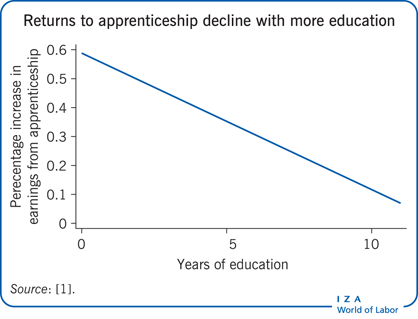Elevator pitch
Apprenticeships are the most common form of non-academic training in sub-Saharan Africa. Most apprenticeships are provided by the private sector, for a fee, and lead to self-employment rather than to wage jobs. Where the effects have been measured, they show that earnings are not higher, on average, for people who did an apprenticeship than for those who did not. This presents a conundrum. Why would people pay for apprenticeship training that does not benefit them? Research reveals that apprenticeships do benefit some people more than others. Especially striking is that the returns to apprenticeships can fall with the level of education.
Key findings
Pros
Household surveys in sub-Saharan Africa show that traditional apprenticeship is by far the most important form of training in Africa’s informal sector.
Apprenticeships transmit traditional skills.
Apprenticeships have expanded with the growth of the informal sector.
Research on apprenticeships in Ghana shows a significant increase in earnings for the self-employed but no effect for wage employees.
Research on Uganda shows an increased demand for training once credit constraints are relaxed, along with an increase in earnings.
Cons
Apprenticeships do not lead to wage jobs.
In Nigeria, wage opportunities for youth declined over 1999–2006, making apprenticeship a more attractive option.
The growth in apprenticeships is linked to self-employment, where returns are dependent on access to physical capital, which is not readily available.
Returns to training can be low relative to returns from higher levels of academic education.
Returns to training differ considerably, and averages are misleading.
